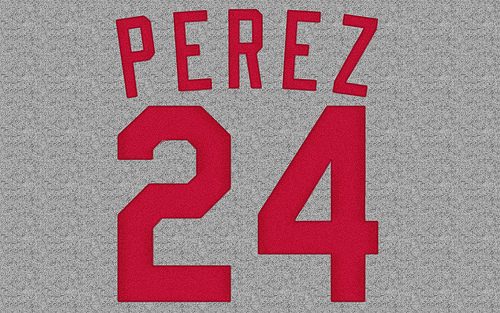Rant: No accent mark for Liam

Another rant. Liam turns ONE year old in about two weeks, and since he was born, we’ve been trying to get his name recorded properly on his birth certificate. We’ve been all over the place and even had an ACLU lawyer helping us for a time, but it looks as though the state of Indiana refuses to spell his name correctly.
Our last name is Pérez. The accent mark is part of the name, not some cute add on. Indiana’s excuse for disregarding it? Their computer system can’t handle “special characters.” Really? Really? You’d think we were trying to spell our son’s name with a smiley face instead of an “a”.
A thoughtful post about a similar problem in California gets right to the heart of why “pesky” details like accent marks really make a difference (they’re part of the language for a reason, folks):
“It’s not wrong, they’re just missing,” said a spokesperson for the California Department of Health Services, referring to birth certificates with the missing Spanish markers.
Well, it is wrong. Those little marks aren’t decorations. They’re part of the Spanish language. In Spanish, ñ is not just an embellished n, but a distinct letter of the alphabet. “If names don’t have the accents or the tildes, they are not spelled correctly,” said Al Camarillo, director of Stanford’s Center for Comparative Studies in Race and Ethnicity.
On any third-grade Spanish quiz, a word spelled without counts as a spelling error. That’s because leaving them out can change a word’s meaning completely. So, for example, caño means pipe, while cano means gray-haired. Mamá means mom. Mama means mammary gland. Pañal means diaper. Panal means honeycomb.
Sure, the accent mark has been missing from Arnie’s name on his official documents in the U.S. and he’s not scarred, but we wanted to get our name (as it appears on birth certificates and documents from Mexico) back into the system. And that name is Pérez. With an accent mark.





12/23/2022 at 9:49 pm
We are going through this with my daughter as well. My husband is of Czech descent and women have an ending on their last name (-ová) common to many slavic languages. So my last name and hers is Kupková. Furthermore, her first name contains the letter š (which makes the same sound as “sh” in English, but i refuse to butcher her name for their sake). My court order shows the correct á on my last name, but her birth certificate shows neither á nor š. SSA and the BMV have a similar limitation. We had a hospital employee try to submit it spelled correctly but said her entire system literally locked up and she had to reboot. The federal government prints hundreds of translated documents in languages with complex characters. It is ridiculous that they have yet to update their software to fix this. If you have had any further luck with pursuing this legally and need support moving forward please contact me.